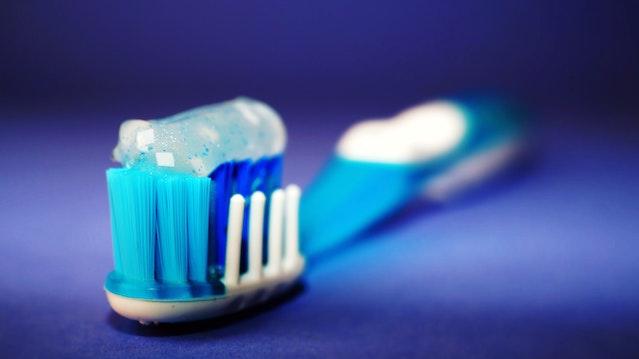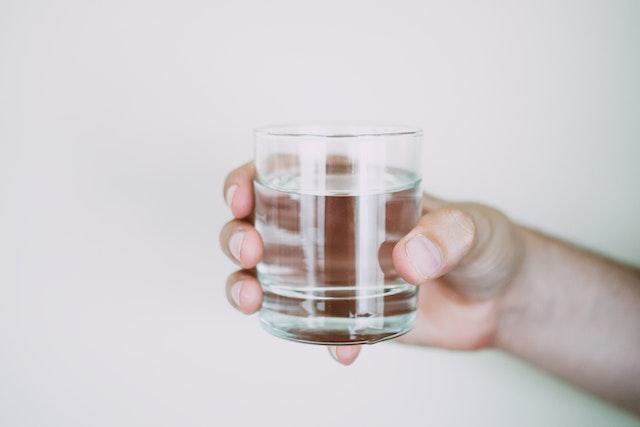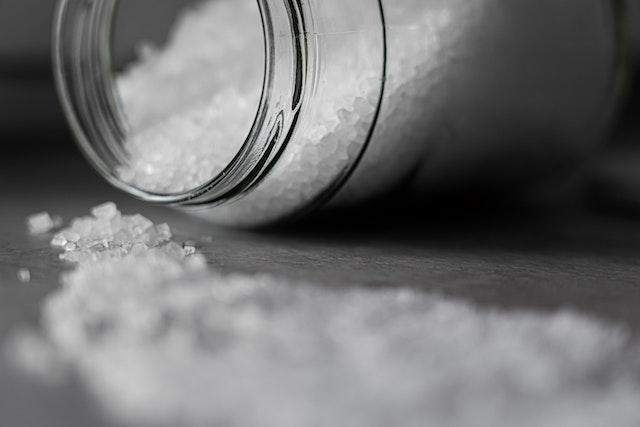Is Fluoride Good for Your Teeth?
Dentists and Doctors alike have been asking the question ‘is Fluoride good for your teeth?’ for quite some time now. However, the answer isn’t a simple yes or no. While Fluoride does provide benefits to your teeth, there are also some concerns surrounding the use of Fluoride.
This article will outline the use of Fluoride and provide a better understanding of is Fluoride good for your teeth.
Table of Contents
Is Fluoride Good for Your Teeth: What is Fluoride?
Fluoride is a naturally-occurring element found in rocks, soil, and water. In its pure form, fluoride is a pale yellow gas. However, it is most commonly found in compounds such as fluorite (also known as fluorspar) and fluorapatite.
Trace amounts of fluoride can also be found in almost all food and drink, including tea, coffee, fish, and eggs. Fluoride is often added to public water supplies to help prevent tooth decay. When ingested, fluoride helps to remineralize tooth enamel, making it more resistant to cavities.
In addition to being added to water, fluoride can also be found in many tubes of toothpaste and mouthwashes. It’s important to use products that contain the proper amount of fluoride, as too much can lead to dental fluorosis (a condition characterized by white spots on the teeth).
To learn more about white spots on teeth, check out our article What Causes White Spots on Teeth
Is Fluoride Bad for Your Teeth? Does it Really Help?

Fluoride has long been used in dentistry to prevent cavities and strengthen teeth. When fluoride is present, it helps to remineralize teeth by binding to the hydroxyapatite crystals that make up tooth enamel.
This process helps to repair small areas of damage and to prevent further decay. Fluoride strengthens the bonds between these crystals, making your teeth more resistant to acid attacks and wear.
In addition, fluoride helps to reduce the growth of plaque bacteria, which can contribute to cavities. For these reasons, fluoride is an important tool for maintaining dental health. When used consistently, it can help to provide lasting protection against cavities and other problems.
Asking is fluoride bad for you teeth is probably not the best way to think about it. Fluoride is good for your teeth enamel, but there may be some overall health risks involved.
Why is Fluoride Good for Your Teeth and What are the Potential Risks
While fluoride is essential for dental health, too much exposure to it can lead to a condition known as fluorosis. In children, this can cause white spots on the teeth. In adults, it can lead to discoloration and even pitted teeth.
In severe cases, fluoride exposure can lead to bone pain and deformities. Therefore, it’s important to be aware of the potential risks of fluoride exposure and to take steps to limit one’s exposure, especially for young children.
Adults should consult their dentist if they notice any changes in their teeth or if they have concerns that they think might be attributable to fluoride use.
Is Fluoride Good for Your Teeth and is it Necessary?
For many years, fluoride has been added to public water supplies to promote dental health. The logic behind this is that fluoride helps to strengthen the tooth enamel, making it more resistant to cavities and other forms of damage.
However, a growing body of evidence suggests that fluoride may not be completely necessary for oral health. Some studies have even linked fluoride exposure to an increased risk of certain types of cancer.
As a result, many people are now questioning whether or not fluoride is really necessary for oral health. While the jury is still out on this issue, it’s clear that there is a growing mistrust of fluoride among the general population.
Whether or not this mistrust is warranted remains to be seen. We highly recommend that you have a conversation with your dentist about the use of Fluoride if you have concerns. They are the most informed on the subject and will point you in the right direction.
Tips for Reducing Fluoride Exposure if You're Concerned
Some people are concerned about the safety of fluoride and want to reduce their exposure to it. If you’re concerned about fluoride, you can do a few things to reduce your exposure:
- Drink filtered or bottled water instead of tap water. Many public water supplies are fluoridated, so drinking filtered or bottled water will help you avoid exposure.
- Use fluoride-free toothpaste. There are many brands of toothpaste available that do not contain fluoride.
- Eat less processed food. Processed foods often contain fluoride from the water they are made with.
- Avoid using products that contain fluorides, such as some mouthwashes and dental flosses.
By following these tips, you can help reduce your fluoride exposure.
Does Your Water Supply Have High Levels of Fluoride?

There are a few ways to test fluoride levels in toothpaste and water. Home test kits are available that use a simple colour-change reaction to indicate the level of fluoride. The results of these tests are not always accurate, however.
Hence, it is best to send a sample of your toothpaste and water to a laboratory for testing. If fluoride levels are high, you can try using a different toothpaste or filtered water for drinking and brushing your teeth.
It would be best if you also talked to your dentist about ways to reduce your fluoride exposure. The optimum level of fluoride for preventing tooth decay is 0.7 parts per million. At this level, the benefits of fluoride outweigh the risks of fluorosis.
However, it is crucial to note that different people may be more or less susceptible to fluorosis depending on their unique circumstances. Eventually, it is always best to consult a dentist or other medical professional before using any fluoride-containing product.
Recommendation on is Fluoride Good for Your Teeth
The answer to this question is still up for debate. However, it seems that the benefits of fluoride in preventing tooth decay outweigh the risks of fluorosis. If you are worried about the potential harms of fluoride, talk to your dentist about ways to reduce your exposure.
As we always recommend, it’s best that you ask the question of ‘is fluoride good for your teeth?’ or ‘is fluoride bad for youth teeth?’ directly to your dentist. They are best suited to answer the question for your specific situation.
Frequently Asked Questions
Can fluoride make your teeth worse?
Fluoride is best when used in a balanced way. Too much fluoride can cause dental fluorosis which can lead to weak, white spots on the teeth. Too little fluoride can lead to weak enamel causing sensitivity and cavities.
Is it good to put fluoride on your teeth?
Fluoride in the form of toothpaste and mouthwash is a great way to strengthen and protect the teeth. Fluoride products should not be ingested.
Why you should not use fluoride toothpaste?
You should not use fluoride toothpaste if you have any allergies or sensitivity to fluoride products. Consult your dentist if you think you have a fluoride allergy.
Take Home Smile Store
Visit our Take Home Smile store for educational brochures and other fun printables to help with oral hygiene. All products can be customized to fit your dental needs.



